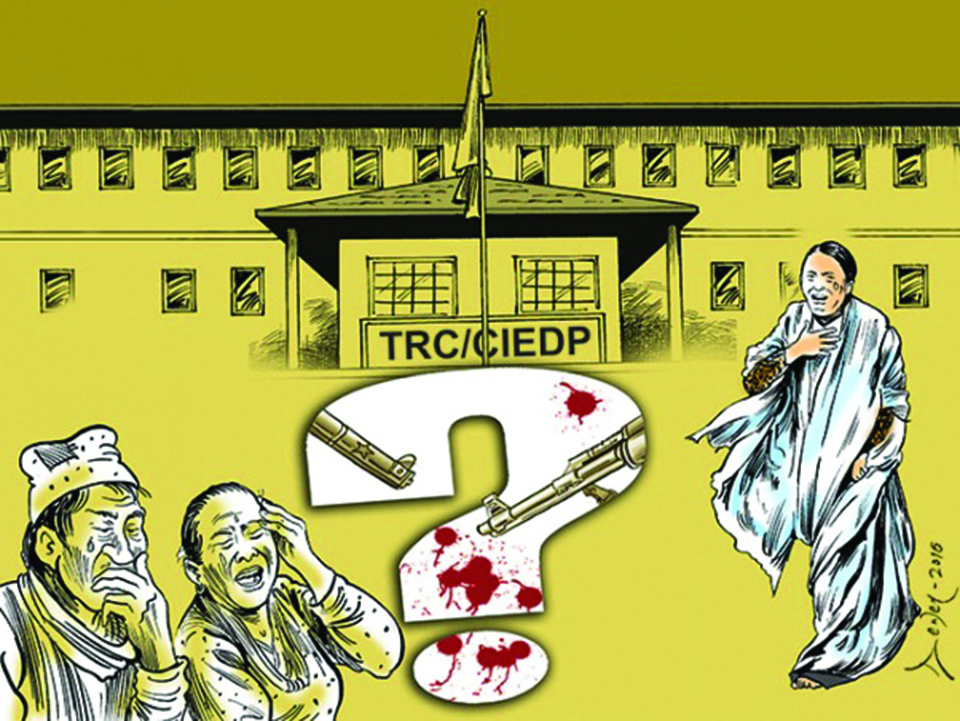KATHMANDU, Jan 23: The Transitional Justice (TJ) bodies are likely to get yet another round of term extensions as these bodies have been unable to conclude investigations into conflict-era cases and ensure justice for the victims within the existing deadline.
Officials privy to developments said the government will extend the terms of the Truth and Reconciliation Commission and the Commission of Investigation on Enforced Disappeared Persons, as investigations into conflict-era cases remain incomplete. The hint at extensions comes from the government less than three weeks before the existing February 9 deadline, which was itself an extension of a previous deadline.
“The government is well aware of the February 9 deadline. Discussions are underway on how to accommodate feedback provided by various stakeholders and frame an amicable law,” said Truth and Reconciliation Commission Secretary Ramesh Dhakal, adding, “And there will be no vacuum at the two commissions.”
Established in February 2015, the two commissions have not been successful in completing their investigations into the more than 63,000 conflict-era cases and ensuring justice for the victims.
TJ bodies to get 3rd new lease of life

The government is preparing to revise a TJ-related bill and table it in parliament before the commissions’ terms expire. In a bid to make the bill more acceptable, government officials and legal experts have been working to incorporate feedback provided by the conflict victims, the United Nations and other stakeholders.
A group of government officials and lawyers had drafted the bill to revise the TJ-related Enforced Disappearance Enquiry, Truth and Reconciliation Commission Act framed in 2014. Backed by the government, the same legal experts have been working to finalize an amended draft accommodating the suggestions of stakeholders.
When the government made the draft bill public in June, stakeholders including the conflict victims came out against it.
Conflict victims, human rights activists and the political parties remain divided over completion of the remaining tasks of the TJ process.
A group of conflict victims and other stakeholders united under the banner of the Conflict Victims Common Platform (CVCP) proposed reconstituting the existing TJ bodies, arguing that these had failed in both establishing the truth and prosecuting the human rights violators despite the lapse of four years.
Dissatisfied with the progress made by the commissions in ensuring justice to the conflict victims, the CVCP proposed forming a high-level political mechanism incorporating the conflict victims and renewing a political commitment to deal with the conflict-era cases.
But a disgruntled group opposed the idea, arguing that it would compromise international TJ standards.
Both the commissions blame the government for the delay in competing their investigations. They said they have not had full support from the government. They also complain that their work was stymied by lack of human resources, funds and the necessary laws.

































